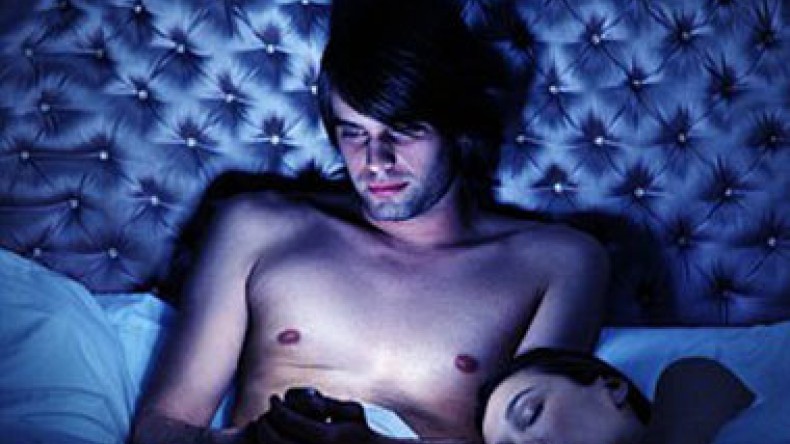
How too much light at night can make you ill
Artificial light has transformed how the human race has lived in the past 100 years or so. It's estimated that between 1950 and 2000, exposure to artificial light in the UK rose four-fold. Even for those not working night shifts, it can be almost impossible to avoid the night-time glare from street lamps, car lights, TVs, computers and smartphones.
Now there are growing concerns that constant exposure to light when it's dark damages our health by disrupting our circadian rhythm - the body's built-in clock. Artificial light affects the production of melatonin, a hormone released by the pineal gland in the brain, the Daily Mail reports.
Melatonin triggers feelings of sleepiness and is released when it gets dark, with levels peaking at around 2am.
During the day, exposure to sunlight stimulates a nerve pathway from the retina (the light-sensitive area at the back of the eye) to an area in the brain called the hypothalamus, which is the control centre for the body clock.
The incoming signals help control hormones, body temperature and other functions that play a role in making us feel sleepy or wide awake.
Once this area receives a signal from the eye that the day has broken, it halts the release of melatonin from the pineal gland. When the sun goes down and darkness occurs, it tells the pineal gland to start releasing the hormone again.
As well as triggering sleepiness, melatonin has other crucial roles, including keeping blood pressure and blood sugar levels healthy.
'Bright light at bedtime suppresses melatonin production, so is probably going to delay sleep and affect the body clock,' says Professor Jim Horne, former head of sleep research at Loughborough University. 'But some people are more sensitive to it than others.'
Repeatedly delayed or broken sleep has been found to raise the risk of heart attacks by up to 50 per cent and strokes by 15 per cent. So how could artificial light be harming your health without you realising?
Scientists at Northwestern University in Chicago recently found exposure to light from computers or smartphones at night could lead to weight gain. Even charging a phone by your bedside could have an effect.
They discovered exposure to such light increases hunger pangs that can last several hours, even if a meal was eaten that evening.
One reason may be that laptops and phones tend to emit more blue light, the kind that usually acts as a wake-up call for the brain and tells our body clock it's time to get up.
Though we usually see light as white, it is made up of seven colours - violet, indigo, blue, green, yellow, orange and red.
The beam produced by ordinary light bulbs does contain blue light but it's less concentrated than in some modern devices.
The study found being exposed to blue-enriched light (the kind smartphones produce) for three hours in the evening stimulated appetite, possibly by tricking the body clock into thinking it was the start of the day and time to replenish its energy stores with food.
This is because melatonin also helps to suppress levels of ghrelin, a hormone that increases appetite, while stimulating the release of leptin, a hormone that reduces food cravings.
Occasional use of devices late at night is unlikely to cause any harm. But repeated exposure has been linked with an increased risk of cancer.
Animal research suggests night-time exposure to artificial light could make children more anxious. A study in the journal Physiology and Behaviour found baby mice exposed to light at night from a young age displayed more signs of stress and anxious behaviour than those sleeping in dark conditions - possibly by increasing levels of stress hormones such as cortisol.
Research in the journal Chronobiology International found elderly people were much more likely to develop diabetes if they sat under bright lights for four hours before they went to bed, rather than dimmer ones.
Exposure to blue light - the kind from smartphones, tablets and laptops - could leave you feeling drowsy the next day, even if you get a good night's sleep. That's the conclusion of a recent study at Tsukuba University in Japan, where nine men were exposed to either blue light or no light for two hours before bed. Although they slept for similar times, the next morning researchers found higher levels of drowsiness among those shown the blue light.
Newsfeed
Videos






























